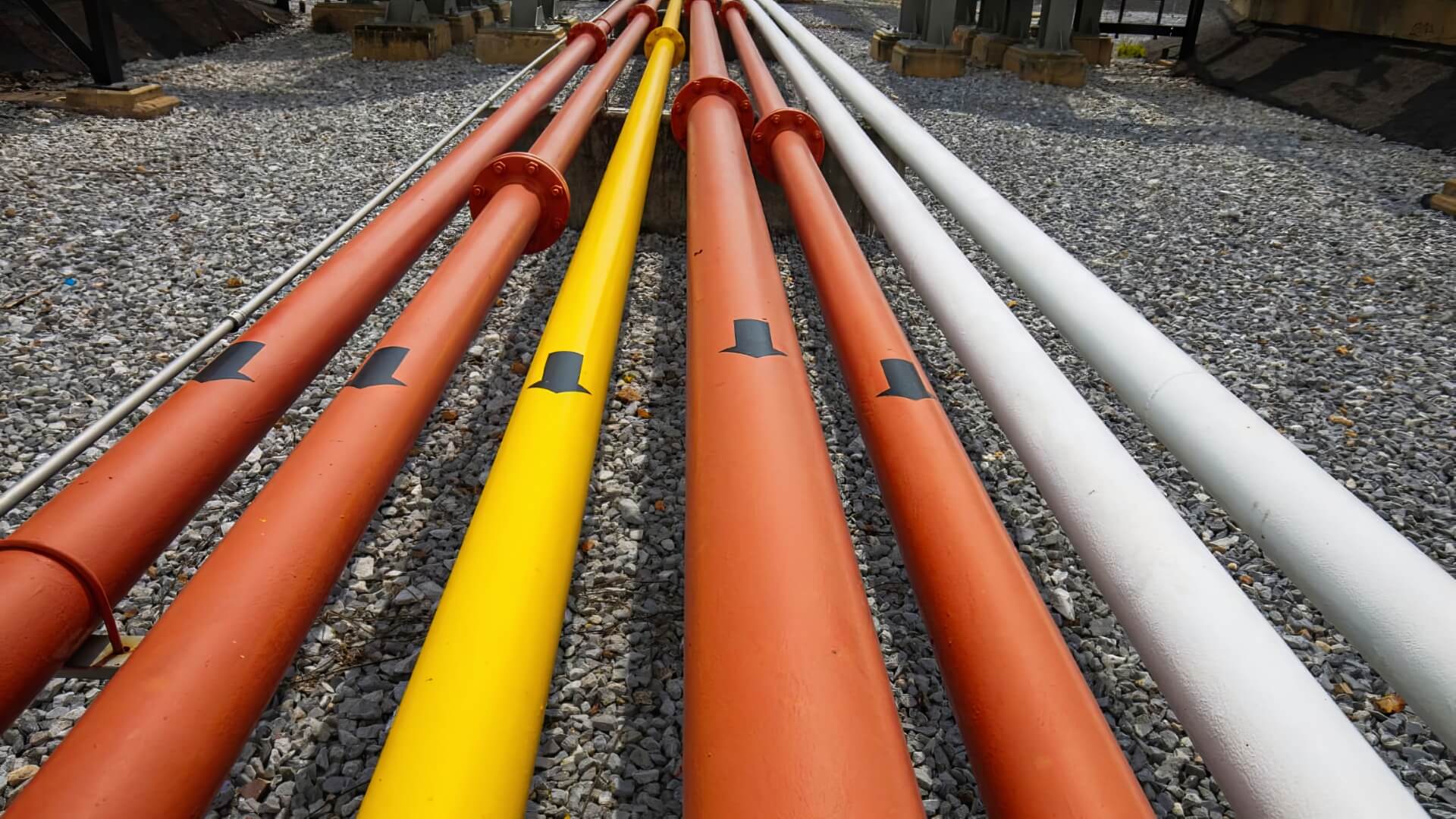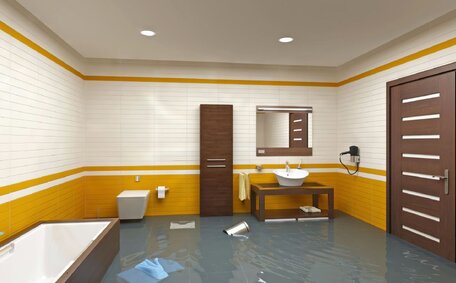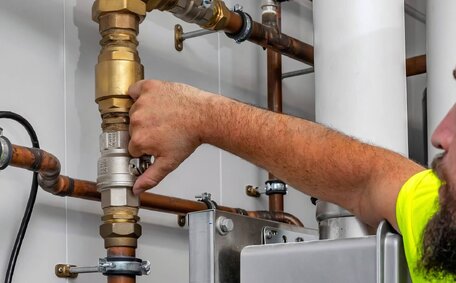Introduction: Blocked Drains in Rental Properties
Determining who is responsible for blocked drains in a rental property is a common source of frustration in landlord-tenant relations. Central to this issue is determining whether a blocked drain falls under the property owner’s maintenance obligations or the renter’s responsibility.
The answer depends on variables like rental agreements, causes of clogs, and relevant tenancy laws.
As a baseline, Landlords make sure to hold accountability for ensuring the proper functionality and drain cleaning of drainage systems before leasing. Tenants are responsible for clearing minor blockages such as those from cooking residues or hair buildup once the property is occupied. Yet, problems like tree roots intruding, corroded pipes, or other structural defects are your landlord’s responsibility to repair.
This article delves into the intricacies of these responsibilities. We explore tenant responsibilities, landlord obligations, preventative measures, effective communication practices and approaches for dispute resolution. The goal is to equip both parties with high quality knowledge and practical solutions, including emergency repairs, regarding blocked drains in rentals.
Common Causes of Blocked Drains
Everyday Items
Blocked drains often result from common household items being discarded down sinks or toilets. These include:
- Fats, oils and grease from cooking
- Food scraps
- Hair
- Tree roots
- Personal hygiene products
- Paper towels
Materials can unintentionally accumulate in drains and lead to blockages. As daily users of drainage fixtures, renters can very easily play a crucial role in preventing avoidable blockages.
Structural Issues
While probing who responsible for some clogs, tenant misuse must be considered, but faulty drainage infrastructure also frequently traps debris. Frequent causes of blocked drains include:
- Cracked, damaged or leaking pipes
- Missing drain screens
- Undersized pipe diameters
- Improperly sloped sewer lines
Landlords are obligated to repair defects to ensure functional plumbing service. Structural failures like collapsed blocked sewer lines also require urgent landlord repairs.
Responsibility Summary
In summary, minor blockages from tenant waste constitute renter obligations. Landlords carry the responsibility to fix physical drainage defects and remove major obstructions like tree roots. We encourage open communication regarding any potential blockages – early intervention can prevent costly damages when the situation was swiftly addressed.
Preventing Blocked Drains
Tenant Guidelines
Tenants are crucial in preventing blockages through careful usage. We recommend:
- Installing drain screens on sinks and baths
- Collecting hair after showering and disposing in bins
- Minimising washing fats or oils down drain systems
- Using drain cleaner regularly for maintenance
- Avoiding flushing sanitary items down toilet to prevent plumbing issues
Landlord Duties
To help avert tenant clogs and infrastructure failures, landlords should:
- Supply mesh drain screens for rental
- Clear tree roots infiltrating external drainage
- Replace old or damaged internal plumbing
- Clean pre-existing minor blockages before new leases
- Inspect and repair faults rapidly when reported
Collaborative prevention can efficiently address blocked drains and prevent potential disasters. However, we’re always here, adept at tactics to deal with blocked drains if issues arise.
Landlord’s Responsibilities
As property owners, landlords bear legal responsibility for ensuring stormwater drainage systems function adequately before leasing. Relevant tenancy laws, like the Residential Tenancies Act 2010 in NSW, obligate landlords to complete the necessary repairs to faults impacting habitation.
Landlords are also required to address hot water system issues and conduct regular functionality checks. It also requires ongoing maintenance if issues emerge during a tenancy. Landlords must:
- Repair structural defects like cracked pipes or faulty alignments
- Remove tree roots from external drainage systems infrastructure
- Rectify blockages caused by structural failures like sewer line collapses
Landlords should professionally arrange for licensed plumbers to address tenant-caused clogs. When requesting repairs from landlords, tenants should seek the guidance of a reliable plumber for practical drain usage advice.
We encourage constructive communication regarding any potential blockages. Early intervention and collaborative prevention are key to mitigating disputes.
Tenant’s Responsibilities
As occupants, tenants assume a sensible level of care for my hot water system and prudent drain usage. This chiefly entails proper waste disposal and prompt issue reporting. Tenants should use fixtures with care and promptly communicate potential blockages to landlords.
Tenants may bear the costs for unblocking clogs resulting from negligence, such as flushing oils or chemicals.
Specifically, tenants must:
- Refrain from pouring fats, oils and debris down the kitchen sink to prevent blockages
- Only flush human waste and toilet paper down toilets
- Collect hair after showering and dispose in bins
- Report any signs blocked drains exhibit, like gurgling, overflow or slow drainage, to landlords promptly
Nonetheless, tenants are not expected to fix plumbing problems such as leaks, root intrusions, or alignment failures that cause backups. Where tenants appropriately report faults requiring landlord repairs, liability protection applies under legislation.
By collaborating with property managers regarding usage and repairs, many drain issues can be averted or rapidly fixed.
Identifying the Cause of a Blockage
Determining the exact cause of a blocked drain is crucial to establishing responsibility. While tenants should care all to prevent avoidable clogs from improper usage, structural faults like tree roots, faulty alignments or cracked pipes require landlord repairs.
Seeking a qualified plumber to inspect blockages is recommended. Specialised drain cameras are essential tools for diagnosing drainage issues effectively.
- Blockage materials like fat deposits, tree roots, etc.
- Identifying where blockage locations are within internal plumbing or Sydney Water wastewater pipes
- Faulty infrastructure requiring repairs
Clear identification of the factors leading to a blockage on your property enables reliable assignment of responsibility. Tenants remain accountable for clearing clogs from negligence like flushed toys or grease buildup. Meanwhile, landlords responsible for rectifying faults like pipe leaks are accountable for clearing the blocked debris accumulation.
If disputes arise, our team can provide documented drain inspections detailing blockage causes. Our team also offers impartial expertise regarding reasonable liability. We aim to mitigate tensions through transparent diagnosis and good-faith communication.
Communication and Dispute Resolution Strategies
Open communication between landlords and tenants remains pivotal in promptly resolving blocked drain your disputes. We advise timely discussions about property issues with your landlord to ensure respectful communication. Where uncertainties around cause exist, one would use the services of a professional plumbing inspection to achieve clarity.
If tenant misuse triggers a blockage, speak transparently regarding liability for unblocking costs as per rental agreements. Similarly, landlords must fulfil repair duties for infrastructure faults impacting drainage function.
Should disputes persist, consider mediating through fair trading departments who can independently arbitrate responsibilities. Our expert plumbing team provides prompt and impartial services to address tenancy drainage concerns if direct discussions falter.
A spirit of compromise and understanding between parties often resolves conflicts, satisfying tenants. Maintain documentary records and communicate politely in writing where needed. Seek professional support if you remain unable to agree on obligation allocation - early specialist intervention prevents exacerbated blockage damages from delayed repairs.
Covering the Costs of Repairs
Handling the financial burden of plumbing issues, like drain repairs in rental properties, depends on the root cause of blockages.
Where tenant misuse like fat disposal or negligent usage can cause blocked drains, tenants typically cover the costs of clearing these blockages. This aligns with rental agreements outlining reasonable usage of fixtures.
Landlords are responsible for financing structural repairs for issues including:
- Tree root infestation of exterior drainage pipes
- Cracked or faulty internal plumbing alignment failures
- Collapsed drains from ageing sewer infrastructure
Landlords, who are legally accountable for maintaining functional private wastewater systems, must correct such faults at their expense prior to tenancy.
We encourage transparent communication regarding any unclear blockage causes. If disputes over responsibilities persist, contacting regulatory bodies for an impartial evaluation and mediation is advisable.
Ultimately, a spirit of collaboration where both parties contribute fairly prevents excessive damages from delayed repairs. Contact us anytime for professional diagnostics identifying causes and liability.
Working with Professional Plumbers
With intricate hot water systems and drainage networks, professional assistance offers immense value for resolving blocked drain issues.
Our skilled team uses specialised equipment such as drain cameras, augers, and hydrojetters to accurately diagnose and clear obstructions. This prevents exacerbating damages, as it is crucial to deal with blocked drains cautiously and avoid amateur repairs.
Specifically, our plumbers can provide:
- Thorough drain inspections pinpointing blockage causes
- Tailored clearing solutions protecting pipe infrastructure
- Ongoing maintenance preventing future disasters
- Impartial legal expertise regarding repair liability
At Moorebank Plumbing, our team meticulously address drainage issues with dedicated communication and exceptional craftsmanship. Contact us on 1300 349 338 for excellent customer service and professional assistance resolving blocked drains or related disputes.
Summary and Key Takeaways
In summary, managing blocked drains in rental properties requires collaboration between tenants and landlords. While tenants must take care to avoid negligence and get it right the first time, landlords retain accountability for structural repairs enabling proper wastewater flow.
We endorse proactive drain maintenance, including using hair traps, removing tree roots and conducting pipe inspections. Where issues emerge, conducting the investigation in a manner that was very professional, ensuring accurate identification of blockage causes, is key to fairly assigning responsibility. Engage professional plumbing assistance if uncertain - we’re always happy to diagnose and resolve drainage problems competently.
Clear communication and mutual understanding can often settle disputes regarding your home. Understand your rental agreement obligations and local tenancy drainage laws. With mutual respect and responsibility, many drain disasters can be promptly averted or amicably resolved in no time.






